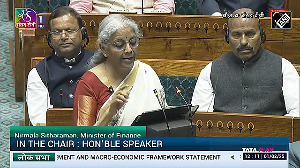China, mindful of its global image, has rebutted as 'inaccurate' the recent 'Tax Misery Index' released by Forbes, asserting that the nation's macro tax burden remains 'relatively low' compared with other countries.
The magazine's recent 'Tax Misery Index' chart rates China as the third most heavily taxed nation in the world after France and Belgium on the 52 country list, with an index of 152.
The misery score is based on the sum of corporate income, personal income and wealth taxes, plus employer social security, employee social security and VAT/sales taxes at the highest marginal rate in each locale, Forbes said.
Reacting to the report, Shu Qiming, a senior official with the State Administration of Taxation, said China's macro tax burden level remains low if considered from a global perspective.
The macro tax burden reflects the proportion of a country's gross domestic product contributed by taxes, he said.
China's macro tax burden was 18 per cent last year, Shu said. The figure was three per cent lower than the average level among developing countries and about 12 per cent lower than in developed ones, he said.
Professor Liu Huan with the Central University of Finance and Economics was quoted by the overseas edition of the People's Daily that the list was not scientific because China's tax structure differs from those in Western countries.
"A consumption tax is universal in Western countries, while China only levies such a tax on special products," Liu
was quoted as saying.
And China does not have a wealth tax, which Western countries usually do. And a heavy tax burden does not
necessarily mean more misery, Liu said.
"Though the tax burden is almost 50 per cent in some Northern European countries, having good social welfare services, like free medical treatment and a large pension, the citizens are satisfied," the expert was quoted as saying.
Meanwhile, Liu said, China also has many preferential policies to lower the tax burden, so the actual rate could be
lower than it appears on paper. A rough estimate is that the country's various tax-reduction policies should lower the
macro tax burden by about 10 per cent, the expert added.






 © 2025
© 2025